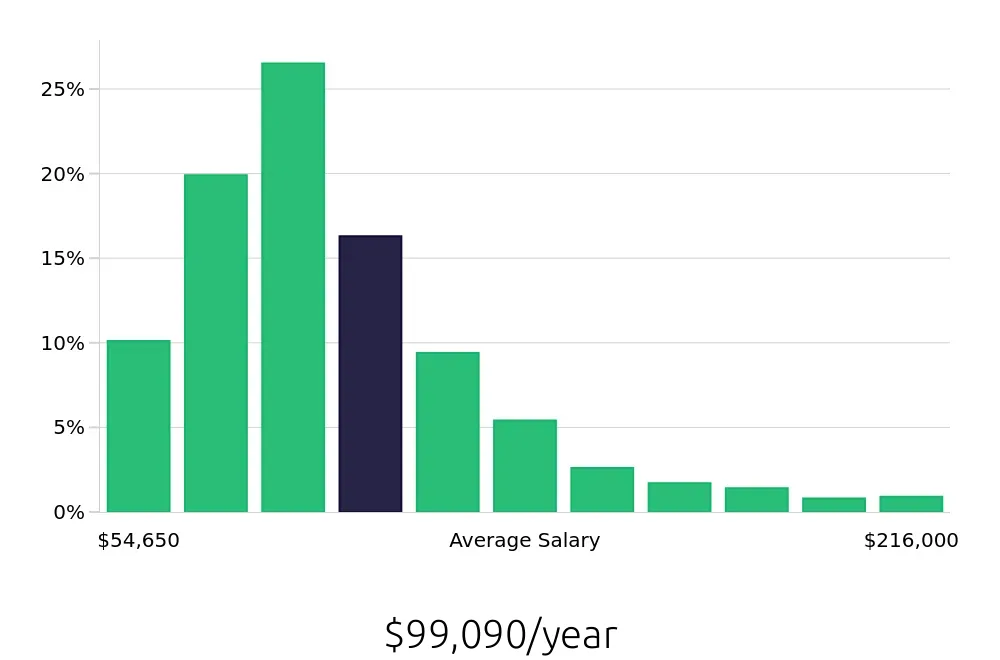What does a Clinical Supervisor do?
A Clinical Supervisor oversees and guides healthcare staff in clinical settings. They ensure quality patient care and manage day-to-day operations. Supervisors work closely with doctors, nurses, and other healthcare professionals to provide support and direction.
Duties include training new staff, conducting performance evaluations, and implementing clinical policies. They also handle scheduling, resource allocation, and conflict resolution. Supervisors maintain accurate records and ensure compliance with healthcare regulations. Their goal is to improve patient outcomes and staff performance.
How to become a Clinical Supervisor?
Becoming a Clinical Supervisor involves a clear path that combines education, experience, and specialized training. The journey starts with obtaining the right credentials and ends with gaining the necessary experience to lead clinical teams effectively. Following this structured process can lead to a rewarding career in healthcare supervision.
Here are five key steps to becoming a Clinical Supervisor:
- Earn a Relevant Degree: Start with a bachelor's degree in a field like nursing, psychology, or social work. This forms the foundation for a career in clinical supervision.
- Gain Clinical Experience: Work in a clinical setting to understand patient care and team dynamics. This experience is crucial for future supervisory roles.
- Pursue Advanced Education: Consider a master's degree in a related field. This can enhance skills and knowledge, making you a stronger candidate for supervisory positions.
- Obtain Certification: Look for certification programs specific to clinical supervision. These programs provide specialized training and credentials that employers value.
- Apply for Supervisory Roles: Use your education and experience to apply for Clinical Supervisor positions. Highlight your skills and any certifications to stand out in the job market.
How long does it take to become a Clinical Supervisor?
Pursuing a career as a Clinical Supervisor can lead to a rewarding role in mental health or healthcare settings. The time needed to reach this position varies based on education and experience. Typically, one can expect to spend several years on this journey. A bachelor's degree in psychology, social work, or a related field takes about four years. Some roles may require a master's degree, adding another two to three years. Gaining relevant experience in clinical settings adds another one to three years.
Professionals often work as therapists, counselors, or case managers before stepping into a supervisory role. Hands-on experience helps to develop the skills needed for supervision. Some states may require a certain number of supervised hours or additional certifications. These can add to the total time. Networking with professionals in the field and seeking mentorship can also speed up the process. A combination of formal education and real-world experience prepares individuals for a Clinical Supervisor role.
Clinical Supervisor Job Description Sample
The Clinical Supervisor is responsible for overseeing the clinical operations within a healthcare facility, ensuring the provision of high-quality patient care and adherence to clinical standards. This role involves managing clinical staff, coordinating clinical activities, and promoting continuous improvement in clinical services.
Responsibilities:
- Supervise and evaluate the performance of clinical staff, including nurses, therapists, and other healthcare professionals.
- Develop and implement clinical policies and procedures in accordance with regulatory requirements.
- Coordinate and monitor clinical activities to ensure optimal patient care and satisfaction.
- Provide training and professional development opportunities for clinical staff.
- Collaborate with other healthcare professionals to develop and maintain a high standard of clinical practice.
Qualifications
- Master's degree in Nursing or related healthcare field.
- Valid clinical license or certification relevant to the healthcare setting.
- Minimum of 5 years of clinical experience, with at least 2 years in a supervisory or management role.
- Demonstrated leadership and team management skills.
- Strong understanding of clinical practices, healthcare regulations, and quality improvement principles.
Is becoming a Clinical Supervisor a good career path?
A Clinical Supervisor plays a crucial role in healthcare settings. They oversee the work of clinical staff, ensuring that patient care meets high standards. This role often involves coordinating patient treatment plans, providing support to clinical staff, and handling administrative tasks. Being a Clinical Supervisor can lead to many rewarding experiences, both professionally and personally.
This career path offers several advantages. Clinical Supervisors often enjoy a stable job market due to the constant need for healthcare services. They also have the opportunity to directly impact patient care and staff performance. Many find the role fulfilling, as it combines leadership with direct patient interaction. However, there are challenges to consider. The job can be stressful, with long hours and high responsibility. It may also require additional certifications and ongoing education to stay current with medical practices.
Here are some pros and cons to think about:
- Pros:
- Stable job market
- Opportunity to impact patient care
- Fulfilling work experience
- Cons:
- High stress levels
- Long hours
- Need for ongoing education
What is the job outlook for a Clinical Supervisor?
Job seekers in the healthcare field can look forward to a promising outlook for Clinical Supervisors. According to the Bureau of Labor Statistics (BLS), there are an average of 54,700 job positions available each year for this role. This offers a steady stream of opportunities for those seeking to advance their careers in healthcare management.
Furthermore, the job outlook for Clinical Supervisors is set to grow by 28.4% from 2022 to 2032. This growth indicates a rising demand for skilled professionals who can manage clinical teams effectively. With this positive trend, job seekers can anticipate more openings and career advancement possibilities in the coming years.
Clinical Supervisors enjoy competitive compensation as well. The BLS reports an average annual salary of $134,440, translating to an hourly rate of $64.64. This attractive salary reflects the importance of the role in ensuring the smooth operation of healthcare facilities. Job seekers can expect rewarding career opportunities with excellent financial benefits.
Currently 2,512 Clinical Supervisor job openings, nationwide.
Continue to Salaries for Clinical Supervisor


